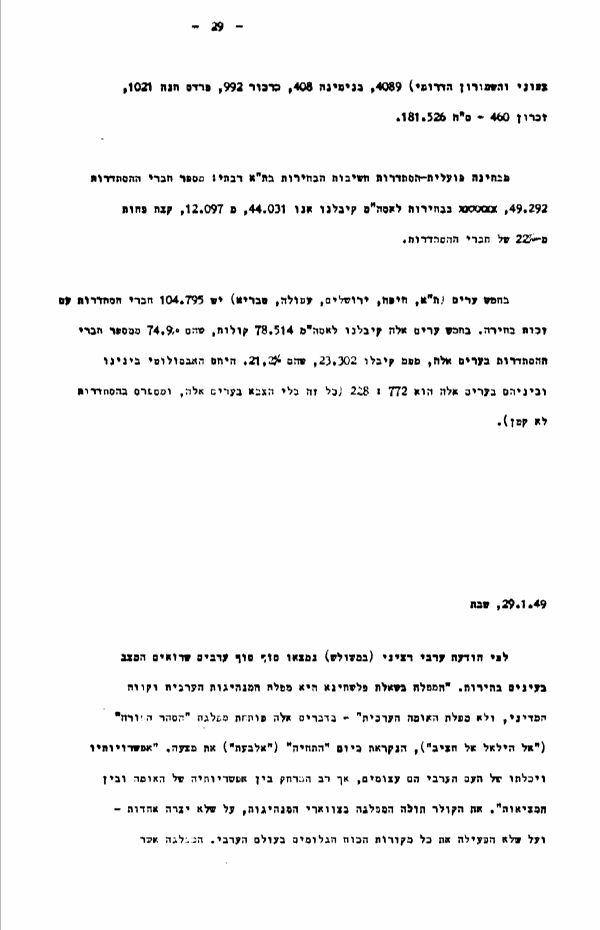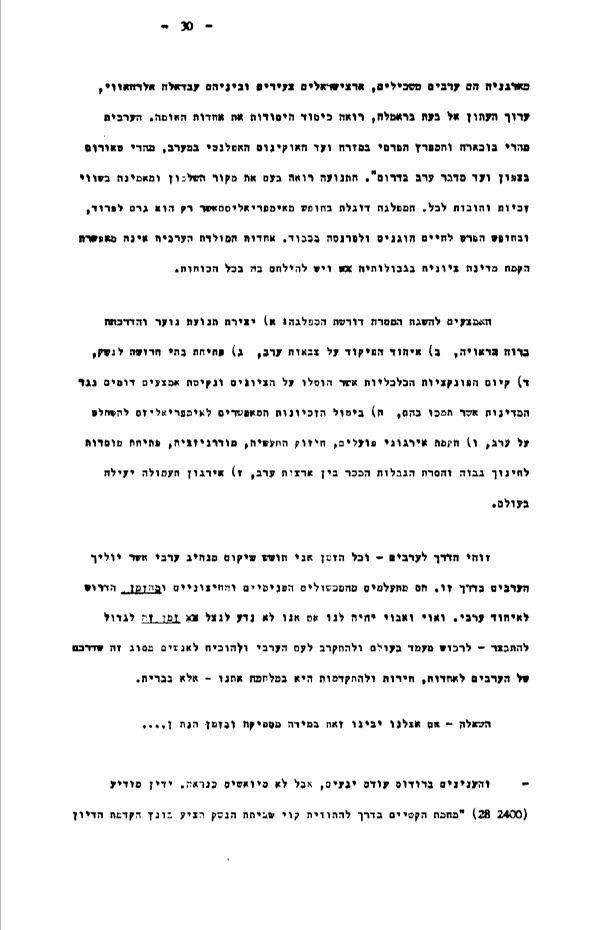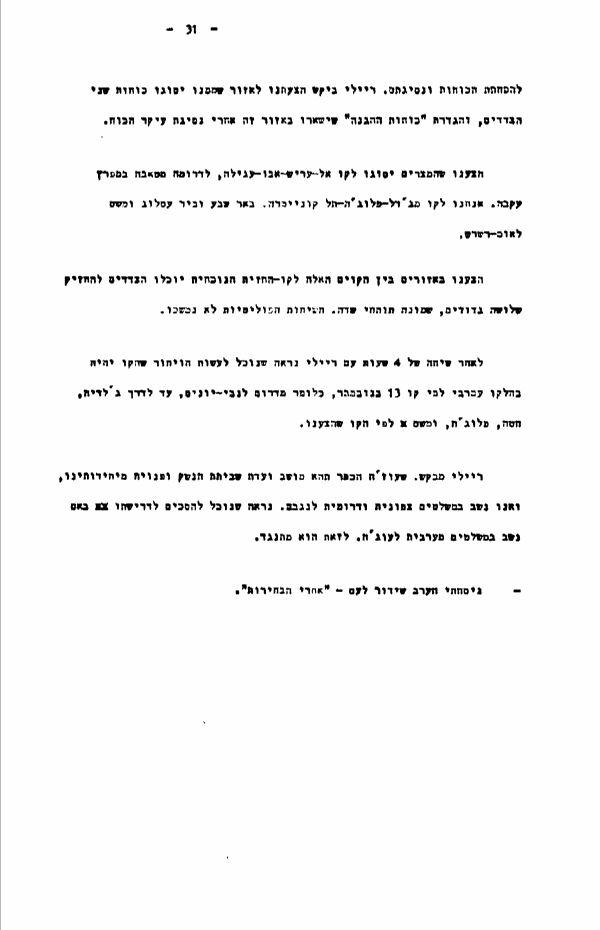1
of
Places:
Azor
H̠erut
Yakum
Parod
Rhodes
Be'er Sheva
Bir Asluj
Ramallah
Quneitra
Aqaba
Jaladiyya
Ashdod
Lakhish
Hatta
Komemiyut
The use of the photograph is subject to the Copyright Law, 2007
29.01.1949
224853
Saturday, January 29, 1949 According to a report from a serious Arab (in the Triangle [under Jordanian rule]), Arabs who see the situation clearly have finally appeared. “The failure in the question of Palestine is a failure of the Arab leadership and its political policy, and not a failure of the Arab nation” – with these words the “Fertile Crescent” (“al-Hilal al-Khasib”) party – known today as “the Resurrection” (“al-Ba’ath”) – opens its platform. “The possibilities and potential of the Arab people are vast, but the distance between the nation’s possibilities and reality is great.” The party blames the leadership for not creating unity – and for not mobilizing all the sources of power inherent in the Arab world. The party, whose organizers are young, educated Eretz-Israeli Arabs, including Abdallah al-Rihawi [sp.], editor of the newspaper Al-Ba’ath in Ramallah, regard the unification of the Arab nation, “from the Bukhara Mountains and the Persian Gulf in the East to the Atlantic Ocean in the west, from the Taurus Mountains to the Arabian desert in the south,” as the fundamental cornerstone. The movement ascribes the source of rulership to the people and believes in equal rights and responsibilities for all. The party advocates freedom from imperialism, which alone led to division, and the individual’s freedom to live a decent life and earn a respectable living. The unity of the Arab homeland does not allow for the establishment of the Zionist state within its borders and this should be fought against with all available forces. As a means to achieving the goal, the party calls for: A) The formation and guidance of a youth movement – in the appropriate spirit, B) A united command over Arab armies, C) Opening weapons factories, D) Maintaining the economic sanctions that were levied on the Zionists and taking similar measures against the states that supported them, E) Revoking the concession agreements that allowed imperialism to take over the Arab [countries], F) Establishing labor organizations, fortifying industry, modernization, opening higher education institutions, and removing the import restrictions among Arab countries, G) Organizing effective propaganda around the world. This is the way to the Arabs – and I’m constantly concerned that an Arab leader will emerge who will lead the Arabs in this direction. They overlook the internal and external obstacles and the time needed for Arab unification. Woe to us if we do not manage to exploit this time to grow, to fortify ourselves – to establish our status in the world and to form ties with the Arab world and to prove to people of this sort that the way the Arabs can achieve unification, liberty, and progress is not through war with us – but through an alliance. The question is whether on our side this will be understood sufficiently and in time… – And matters in Rhodes are still wearying, but apparently not yet despairing. [Yigael] Yadin reports (282400): “Because of difficulties delineating the armistice lines, Bunche proposed that the reduction and withdrawal of forces be discussed first. Riley asked what we propose as an area from which the forces of both sides would withdraw, and a definition of the “defensive forces” that would remain in this area after the main force has withdrawn. We suggested that the Egyptians withdraw to the El-‘Arish – Abu Ageila line, and south of Taba in the Gulf of ‘Aqaba. We [would withdraw] to the Majdal – Faluja – Tel Quneitra – Beersheva and Bir-‘Isluj line, and from there to Umm Rashrash. We propose that in the areas between these lines and the current frontline, the sides could maintain three battalions, eight field cannons. The political talks did not continue. After a 4-hour conversation with Riley, it seems that we’ll be able to concede the western part of the line based on the November 13 line. That is, from south of Nebi Yunis [by the Lakhish Stream estuary, Ashdod today] up to the Jaladiyya road [east of ‘Ein Tzuri], Hatta [southeast of Komemiyut], Faluja, and from there along the line we proposed. Riley requests that the village of ‘Auja serve as the seat of the armistice committee, cleared of our units, and we would sit in strongholds to the north and south of ‘Auja. It seems that we’ll be able to accept his request, if we sit in strongholds west of ‘Auja. To this he objected. – In the evening I drafted a broadcast to the nation “after the elections.”











